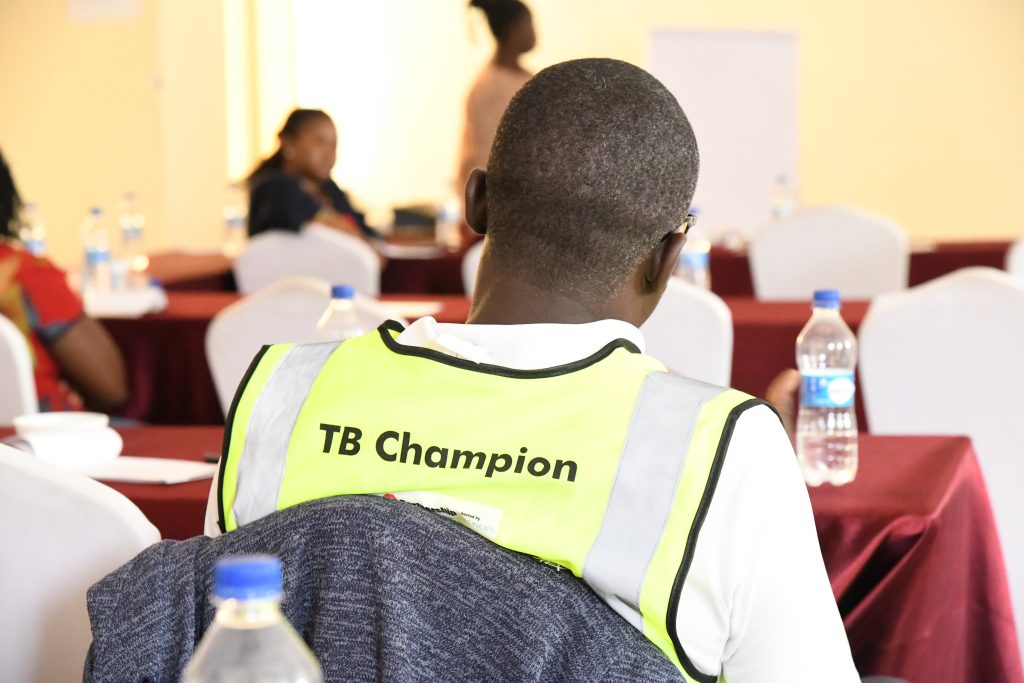Voices of Hope: How TB Champions Are Changing Lives in Kisumu County

At the Royal City Hotel, Kisumu, a group of dedicated TB Champions gather for a one-day meeting, representing every sub-county.
Supported by the Catholic Medical Mission Board (CMMB) under the Global Fund HIV program and the Kenya Red Cross, in collaboration with the National TB Program, the event highlights the critical role these Champions play in the fight against tuberculosis (TB).
By sharing their personal stories, these unsung heroes, many of whom are TB survivors, provide priceless insights into the human side of the illness. Their stories, which range from concerns about gender inequality, and human rights to patient support, stigma, treatment disruptions, and contact tracing, powerfully convey a message of hope and resiliency.
“I was once shunned by my friends when I used to wear a mask,” says Isaac Rabari, a TB Champion from Kisumu Central Sub-County. “But today, I use my story to educate others that TB is curable and not a death sentence.” Rabari’s experience underscores stigma as one of the greatest barriers to TB diagnosis and treatment.
Managing female sex workers with tuberculosis in the County also poses difficulties. In addition to their TB diagnosis, many of these women experience further stigma because of their profession, which is frequently disregarded and misinterpreted.
According to Elizabeth Odaba, a TB Champion from Kisumu Central, their inability to seek prompt care due to fear of prejudice results in delayed diagnosis and treatment disruptions. “It is also challenging for them to follow the extended TB treatment program because of their erratic lifestyles and financial difficulties.”
Odaba notes that their path is made more difficult by limited access to gender-sensitive healthcare services, underscoring the critical need for specialised interventions that uphold their rights, offer psychosocial support, and guarantee fair access to care.
Many in the community still view TB as a disease of shame, linked to poverty or weakness. The Champions advocate for a rights-based approach, ensuring TB patients are treated with dignity and respect, and that gender disparities in access to care are addressed.
For Collins Abisae, another Champion from Kisumu Central, the meeting is an opportunity to share his success in supporting clients who have interrupted treatment. “I follow up on patients who miss clinic appointments,” he explains. “Sometimes, all they need is someone to listen to them or provide transport to the health facility.”
Some of the Champions are also advocates. They use platforms like World TB Day to promote awareness. Their presence in community networks amplifies critical messages on the importance of early diagnosis and adherence to treatment.
Contact tracing was also identified as one of the most effective strategies. Through their grassroots networks, the Champions identify people who may have been exposed to TB and guide them to health facilities for screening and treatment services.
The work of TB Champions highlights the pressing need for community-based support systems. They bridge the gap between healthcare facilities and patients, fostering trust and providing psychosocial support that no clinic can replicate.
With proper training and resources, they are transforming the landscape of TB management in Kisumu County. At the meeting, the County TB Health officials acknowledged the Champions’ critical contributions. “TB is not just a medical issue; it’s a social one. Empowering these Champions will not only address the disease but also the systemic barriers” remarked Esther Akinyi, Muhoroni Sub-County TB Coordinator.
The champions create trust and offer psychosocial support to the community that no clinic can match, bridging the gap between patients and healthcare institutions. They are changing the TB management scene in Kisumu County and their vital contributions were recognised by Beatrice Ooko, Kisumu Central Sub-County TB Coordinator.
“By empowering these Champions, we’re tackling both the disease and the structural obstacles that sustain it. “TB is not just a medical issue; it’s a social one,” says Ooko.
Mr. Dennis Mennya, the CMMB focal person, emphasized the organization’s commitment to addressing barriers to TB management in the County. “We are dedicated to supporting TB Champions in their efforts to combat stigma and tackle issues related to gender and human rights,” he noted. “By empowering communities and tailoring our interventions to the unique needs of vulnerable groups, we can ensure equitable access to TB care for all.”








